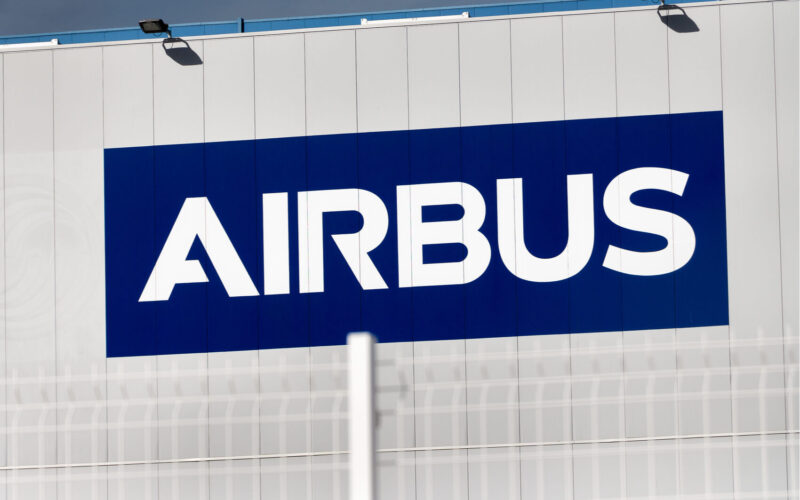Airbus published a net loss of €481 million in the first quarter of 2020, compared to a net profit of €40 million a year earlier. The manufacturer said it quickly saw the effects of the coronavirus epidemic.
Revenues fell by 15% in the first three months of the year to €10.6 billion, with 122 aircraft delivered, 40 fewer than last year. Another 60 planes were produced but saw their deliveries deferred due to the COVID-19 pandemic. The revenues of Airbus Helicopters were up 19% with €1.2 billion, and those of Airbus Defense and Space remained stable at €1.202 billion. However, the commercial aircraft division took a hard hit, with turnover down 22% to €7.6 billion.
“We saw a solid start to the year both commercially and industrially but we are quickly seeing the impact of the COVID-19 pandemic coming through in the numbers,” said Airbus Chief Executive Officer Guillaume Faury, who qualified the times as “the gravest crisis the aerospace industry has ever known.” Airbus did not publish any new financial targets.
As a sole consolation, net orders over the period amounted to 290 aircraft while they were negative for 58 aircraft in the first quarter of 2019. But that may not last.
Only two months ago, Airbus was focusing on increasing its production rates to meet demand, as it had just surpassed Boeing as the first aircraft manufacturer in the world.
Today, that time seems far gone. To cope with the effect of the crisis, Airbus chose to reduce its production output by a third in early April. Two days before the publications of the financial results, Guillaume Faury announced the measure could be reassessed upwards as demand will be evaluated in the next two to three months. Job cuts are now looming, and a voluntary retirement plan could be offered to some of the 135,000 Airbus employees. Around 3,200 employees of Airbus wing assembly in Broughton, Wales, were put on temporary leave.
Damage control asks for Airbus to refocus its energy… and cash. As a consequence, the E-Fan X project, a four-seat aircraft powered by electricity that was being studied in partnership with the British engine maker Rolls-Royce, was canceled on April 24, 2020.
A premature end for A380?
Facing an unprecedented drop in demand, airlines are actively seeking to reduce their fleet, and the older, long-haul aircraft will be the first victims.
With 20% to 25% more fuel per seat than the latest generation long-haul aircraft, the future of the A380 is more than ever at stake. When the German group Lufthansa (LHAB) (LHA) announced that it would reduce the size of its fleet, it chose to permanently retire its six A380s. Before the crisis, Air France had already planned to retire its nine A380s earlier, setting the date to 2022. Now Ben Smith, CEO of Air France-KLM, is asking himself if it even makes sense to put them back into service.
On February 14, 2019, Airbus announced it would put an end to the A380 program in 2021. Nine superjumbos remain to be delivered, including one for All Nippon Airways, and the rest for Emirates — the main customer of the A380 with 125 aircraft. The near-future of the superjumbo program now hangs on the decision of the Gulf carrier regarding the orders.
Several governments have announced that state aid given to airlines would be conditioned upon environmental goals. Thus, priority should now be given to more efficient aircraft, and in this domain, Airbus may have an edge: its long-range single-aisle, the A321XLR, launched in June 2019 at Paris Air Show, has already grabbed more than 450 orders.
France “ready” to help Airbus
Following the publication of the financial results, French Minister of the Economy Bruno Le Maire said he was ready to help “fully” and if necessary “massively” the European planemaker. The minister specified that the state aid amounting to €7 billion announced for Air France-KLM is “already a form of support for the European aircraft manufacturer,” as it was conditioned upon purchases of Airbus and the French aeronautic sector. “If we support Air France, it is also and I do not hide it to support Airbus,” he summarized.

